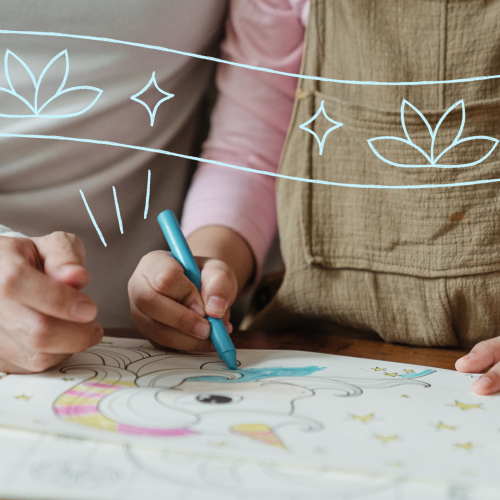
Making Lockdown Fun for Children on the Autism Spectrum
Full lockdown. Something that none of us anticipate in our lives, especially when routine, structure, and daily activities are our solaces. I have a nine-year-old son who was diagnosed with autism five years ago, and the thought of being restricted fills me with dread. This feeling is being experienced by millions of parents and carers across the globe, however, having a child with additional needs brings on extra anxiety and worry.
Over the last 18 months, I have begun to build up the resources on my website and social platforms to support individuals and families like myself who are in desperate need to get out and about, as well as tips and tricks that support the needs of families like mine.
Unfortunately, these outings, activities and day trips have stopped. My son, Jimmy, is used to parks, swimming, soft play, and horse riding. The ultimate difficulty is explaining to a child with communication issues that these places are closed, and we don’t know when they will open again.
Having a structure and routine is something many autistic individuals thrive upon. But in these uncertain times where daily we are faced with change, so are their routines. Only a week ago we could still go outside with social distancing measures, and now we are only able to have away-from-the-house exercise once a day. If we follow suit with Italy and many other parts of the world, even this will be restricted soon.
So, what can we do? Now, I am not saying I have the magic bullet but there are a few ideas that might help create some form of normalcy for your little ones:
1. Daily exercise
Use your daily exercise to either cycle or scoot somewhere. If you can’t get to an open space, create a circuit so you do a loop back home. This stops the “where are we going?” questions.
2. Sensory circuits
Create jumping spaces by using quilts, cushions, or trampolines. Roll your child up in a quilt and unroll them. Create a swing using a sheet and two adults. Also, a great idea is to let them play underneath a fitted sheet. So many individuals have sensory needs and regulating their senses regularly or before the next activity really can help keep them balanced.
3. Calm space
Make a room or corner a calm space, or make their room dark and sensory at some point in the day. Use music and sounds to support the tranquil environment. If you have outdoor space available and the weather is dry, try building a den outside. This could be used if you notice your child is bubbling and needs a moment to regulate themselves to avoid a meltdown. Hopefully, they might independently use this during moments in the day too.
4. Outside space
Use the garden (if you have one) while you can. Get bean bags, balls, anything to bounce and throw. This physical activity will expend energy, but also you can incorporate a few speech and language activities or even some simple addition and subtraction math problems. Schoolwork doesn’t need to be done sitting at a desk!
5. School activities
Remember, quality rather than quantity. Any academic work is much better in small amounts. Make this manageable and limit school activities to 3 or 4 smaller tasks. Use language such as “first, then and last”, or use “now” and “next” board. By having smaller manageable tasks, you will take away any overwhelming feeling for both of you.
6. Choosing time
Create a box or have a collection of things they love and have this built into the day. This will give you an opportunity to have a 5-minute break as a carer and will help them build more independent skills.
7. Videos, photos and FaceTime
Get them to record themselves or other members of the family. Anything to make technology interactive. These could be sent to family members, friends, or teachers at school. This may help the individual understand a little more about why they are unable to go away from the home to do activities.
8. Messy play
By far not my favorite but it’s great. Get a big plastic sheet or container with pasta, paints, shampoo… anything that creates sensory feelings. Finger painting is an easy sensory activity for this! Again, engaging with their senses is a great feeling and helps them regulate themselves more.
9. Audiobooks and music
This is something that can help calm and relax them. Try and create a relaxation corner under the stairs or in a corner of a room by using blankets and pillows to support this time. This might be something to think about before bed or in the lead-up to bedtime however, it’s just as great at any point during the day. I find it really helps me relax as well!
10. Favourite go-to’s
Hold back a few activities that you may have boxed away (birthday gifts or things you managed to buy online). If they absolutely love construction bricks, keep a set as an absolute backup. If there are toys they love (like trains in our case) hold these back and get them out as a helpful hand in stickier situations.
Since we are all journeying through this challenging time, it’s crucial as a parent and carer that you truly look after yourself as much as possible as well. While raising a child with additional needs, you can sometimes forget your own self-care which is essential more than ever at the moment.
Over the last few days and weeks of self-isolation, I have tried to incorporate a few things to keep my mind, body, and soul happy and healthy that I thought I would share in case it helps you as well!
1. Exercise
This is something I, personally, have always turned to daily to help regulate my emotions. It’s the time I reflect and get some vital mind space. I try to complete one HIIT (high-intensity interval training) session in the morning, sometimes with the kids joining in. This is by far what has really helped me keep my mental health balanced. I do my outside exercise when the sun is coming down. I’m fortunate that I can go at this time but it amazingly helps me clear my head with all the things that happened over the course of the day.
2. Music
I love exploring and listening to music, different radio stations, or even an old album. What I’m enjoying most about this is being able to share these discoveries with friends and family. I’ve also found leaving some calming background music on is helping to keep the house calmer and happier throughout the day.
3. Food & drink
Eating as healthy as possible and drinking lots of water are great ways to give yourself more energy. This is so crucial when caring for a child with additional needs who has masses of energy.
4. Five-minute breaks
Finding a quiet space for as little as five minutes can really help your personal mind space. This morning I walked to the post box and really appreciated being outside, the birds, the sunshine, and even the wind and clouds. I also try and have a coffee break once a day away from the children, either in the garden or in a room where they haven’t found me.
5. Meditation
Meditating for even a few minutes can massively help. If you can do it with your kids then great, but taking a moment out of the day for yourself is just as important. I find this gives a small bit of time to reflect and regroup for the next thing you need to tackle.
Hopefully, this will help you find routine and fun while confined to your home! Remember to look after yourself and your little ones during this uncertain journey we are all embarking on.
To read more about how to keep your children relaxed during times when your daily routines are being shifted, check out Moshi’s blog Calming Techniques for Kids When Routines are Disrupted.
